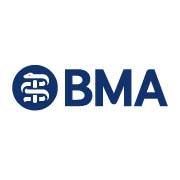PRESS RELEASE : Consultation launched on free early education [November 2011]
The press release issued by the Department for Education on 11 November 2011.
The Deputy Prime Minister Nick Clegg and Children’s Minister Sarah Teather set out the plans in a consultation on changes to free early education.
The consultation includes proposals to:
Make the free entitlement to 15 hours per week of early education more flexible, so it can be taken between 7am and 7pm, and spread across two days instead of the current three days.
Use the criteria which is used for free school meals to decide which disadvantaged two-year-olds should qualify for free early education,
Include two-year-olds who are looked after by the state in the eligibility criteria for free early education.
Slim down statutory guidance for local authorities from 100 pages to fewer than 20 pages.
Under the plans, up to 140,000 disadvantaged two-year-olds will be entitled to 15 hours a week of free early education. The announcement follows the Government’s commitment, made by the Deputy Prime Minister in October 2010, to extend 15 hours of free early education – currently available to all three- and four-year-olds – to disadvantaged two-year-olds from September 2013.
Nick Clegg said:
I want us to give every child the best possible start – so free education for toddlers from the most disadvantaged homes will now be a right and not a privilege. Crucially the extra care will be flexible and easy to access. Parents across the country are bending over backwards to balance work and home. The Coalition wants to help in whatever way we can.
Sarah Teather, Children’s Minister, said:
Our priority is to increase social mobility by helping children from the poorest backgrounds in their earliest years. High quality early education is the key to making a difference early on in a child’s life. It’s crucial for their healthy development and means they’re not falling behind before they have even started primary school.
We want more children to be able to access their full early education entitlement. Too often, the most disadvantaged children don’t get what they are entitled to. It’s important we target early education at those who stand to benefit the most.
We also want to make the entitlement more flexible, so that children don’t miss out on early education and parents can help balance their work and family life more easily.
All 152 local authorities in England have been delivering a targeted offer of between 10 and 15 hours of free early education to some of the most disadvantaged two-year-olds since September 2009. The extension of 15 hours to all disadvantaged two-year-olds will mean an increase in the number of places across the country, from 20,000 per year to around 140,000 per year.
The Department is funding 15 trials in 18 local authorities to test approaches to expand free early education for disadvantaged two-year-olds. The trials are looking at the challenges that local areas face to deliver the expansion as well as helping them to share learning and best practice across the country. The trials will run until 31 March 2012.
The Department is also consulting on how to improve the way in which local authorities tell parents how they are ensuring sufficient childcare places in the local area. An annual report to parents would replace the overly bureaucratic childcare sufficiency assessment that local authorities must currently do every three years.



